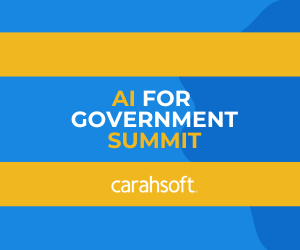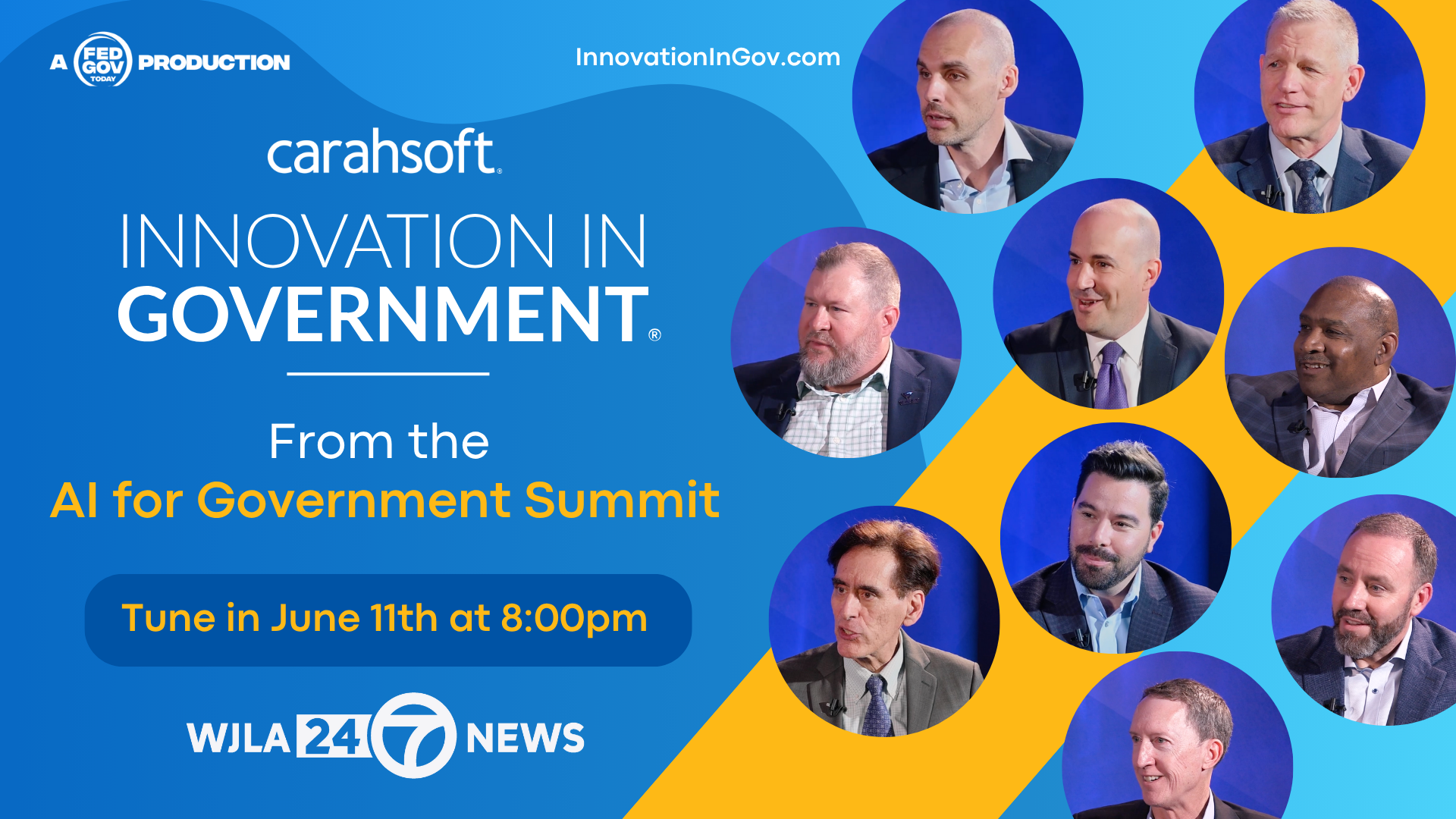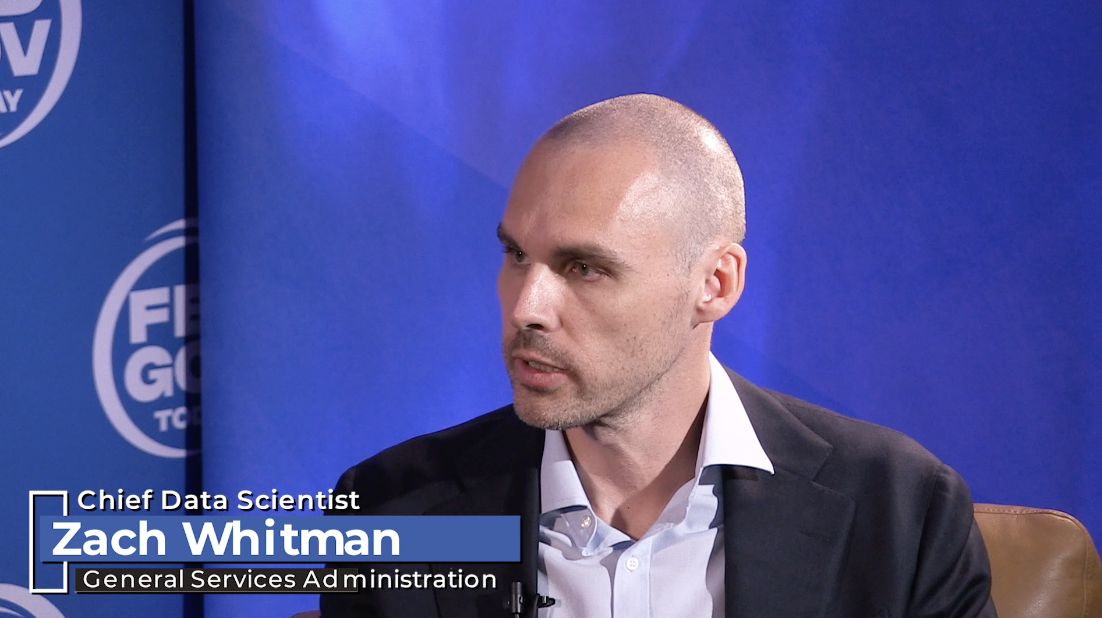
Inside GSA’s AI Transformation
Artificial intelligence doesn’t always begin with grand ambitions—it often starts with solving a simple, persistent problem. At the General Services Administration (GSA), that problem was routine administrative tasks eating up valuable time across the workforce. What began as a pilot project for a chatbot to support employees has become a foundation for GSA’s broader AI journey. Zach Whitman, the agency’s Chief AI Officer and Chief Data Scientist, shared insights at the AI for Government Summit on how GSA’s pragmatic, people-centered approach is paying off.
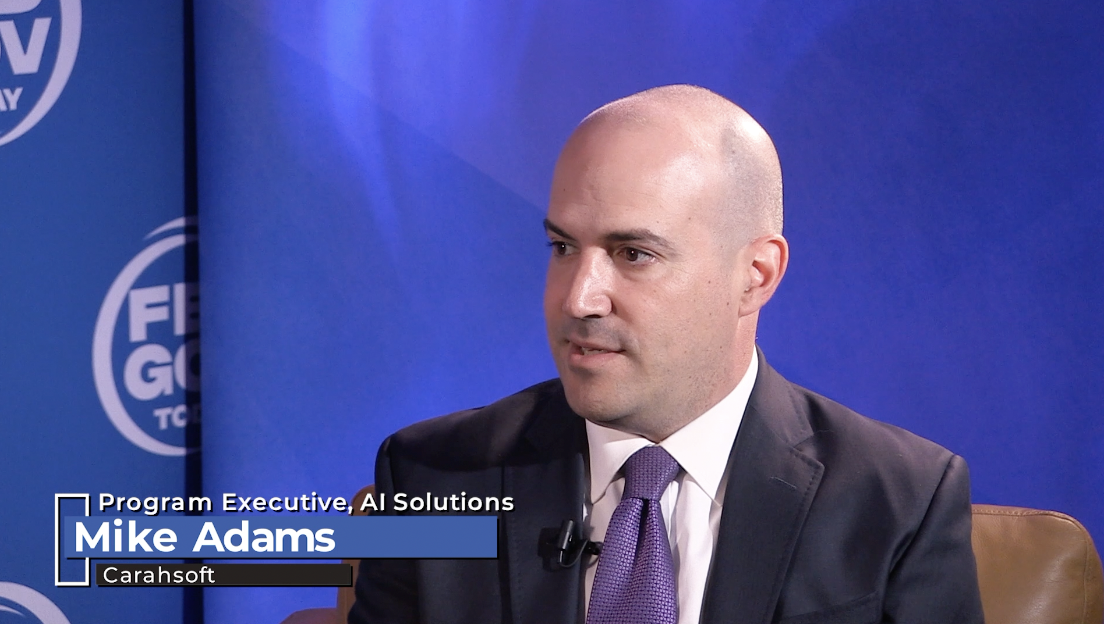
Driving Mission Outcomes with AI Infrastructure
AI is only as effective as the foundation it runs on, and the federal government is learning quickly that infrastructure includes far more than just GPUs. As AI Program Executive at Carahsoft, Mike Adams explained, agencies must consider cloud architectures, data handling, and security protocols as key components of a successful AI ecosystem.
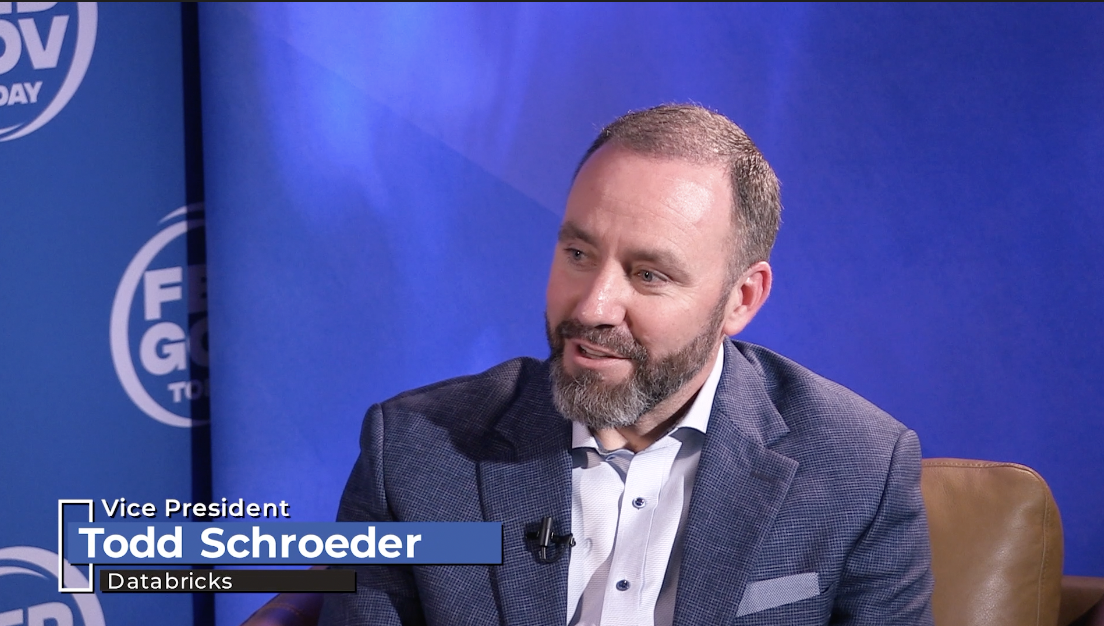
Accelerating Results Through Data and Urgency
Todd Schroeder, Vice President of Federal Government at Databricks, shared how successful AI adoption in government starts not with technology, but with urgency and leadership. Increasingly, it’s business and mission leaders—not just technologists—who are driving the push to use AI for better results.
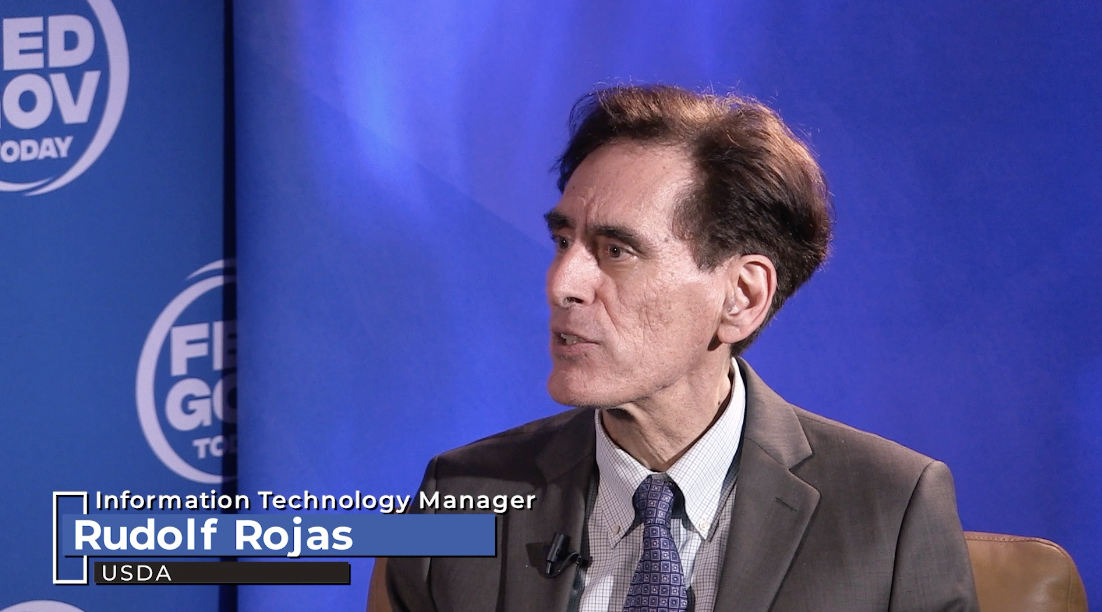
Mission-Driven AI for Agriculture and Security
At the U.S. Department of Agriculture, Information Technology Manager Rudolf Rojas described how AI is helping the agency tackle both security threats and operational inefficiencies. USDA handles highly sensitive agricultural data used in financial markets, and safeguarding that information is a top priority.
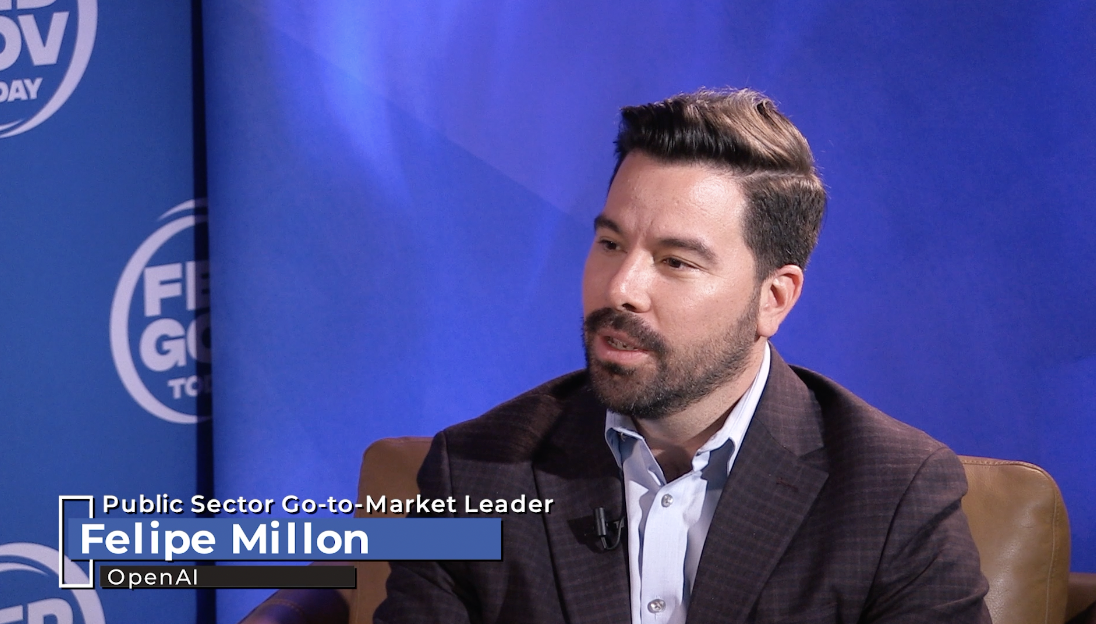
Scaling AI Through Partnership and Strategy
Felipe Millon of OpenAI detailed how public sector organizations are transitioning from pilot programs to scaled implementations of AI, and how strong partnerships make the difference.
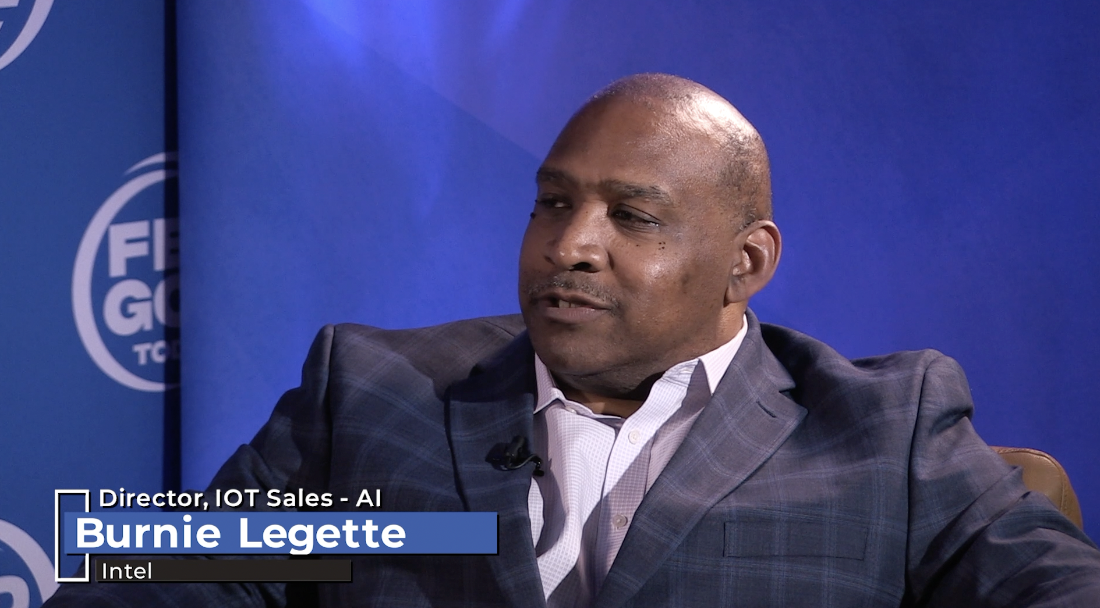
Delivering AI Outcomes at Scale
At Intel, Burnie Legette, Director of IoT Sales - AI for Intel, explained how AI is delivering real value by automating routine tasks like document creation and research, freeing government employees for more creative work. He described AI as a digital intern that supports—not replaces—staff, while noting that trust in AI-generated output is still a barrier for some.
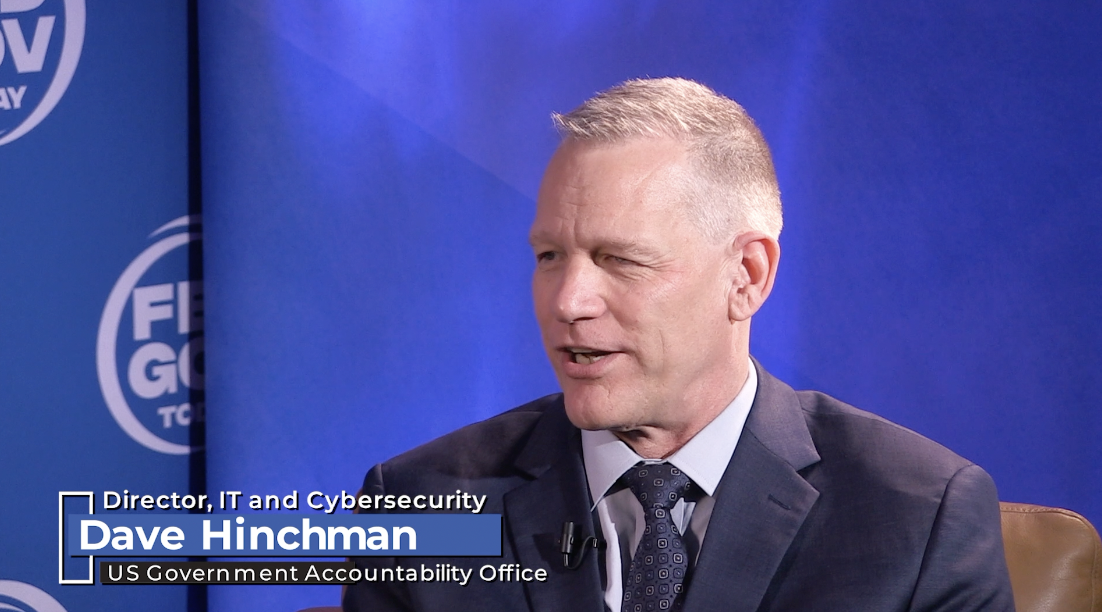
Mindful AI Infrastructure Planning for Long-Term Success
Dave Hinchman, Director of IT and Cybersecurity at the Government Accountability Office, emphasized the need for mindfulness in planning AI infrastructure. Based on decades of audits, Hinchman explained that agencies too often fail to think through the full lifecycle of technology deployments.
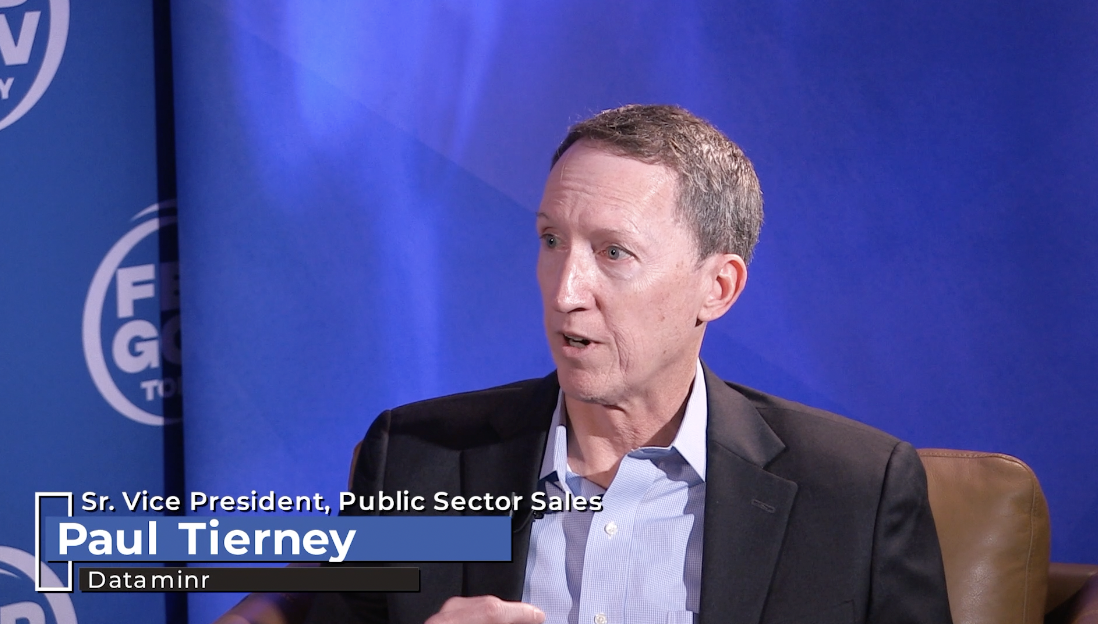
Cybersecurity at the Edge with Agentic AI
Paul Tierney, Senior Vice President of Public Sector Sales at Dataminr, described how artificial intelligence is revolutionizing cybersecurity across government.
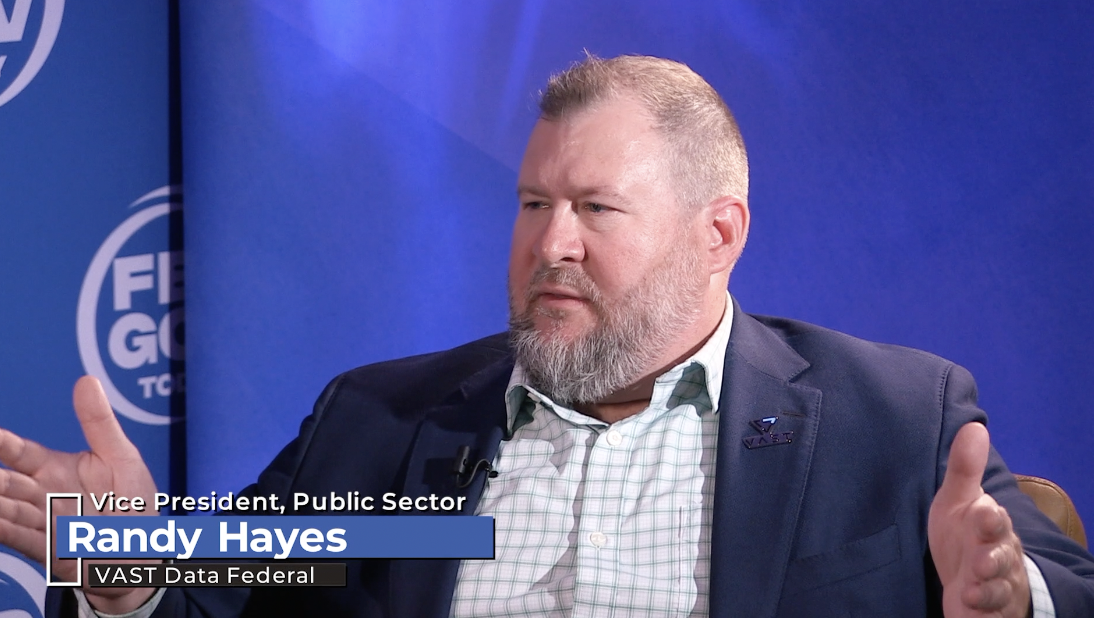
Efficient, Secure AI Pipelines for Government
Randy Hayes, Vice President of Public Sector at VAST Data Federal, emphasized the importance of working with partners who have real experience building AI pipelines. With AI infrastructure becoming more complex, Hayes warned against relying on vendors with buzzwords but little delivery.
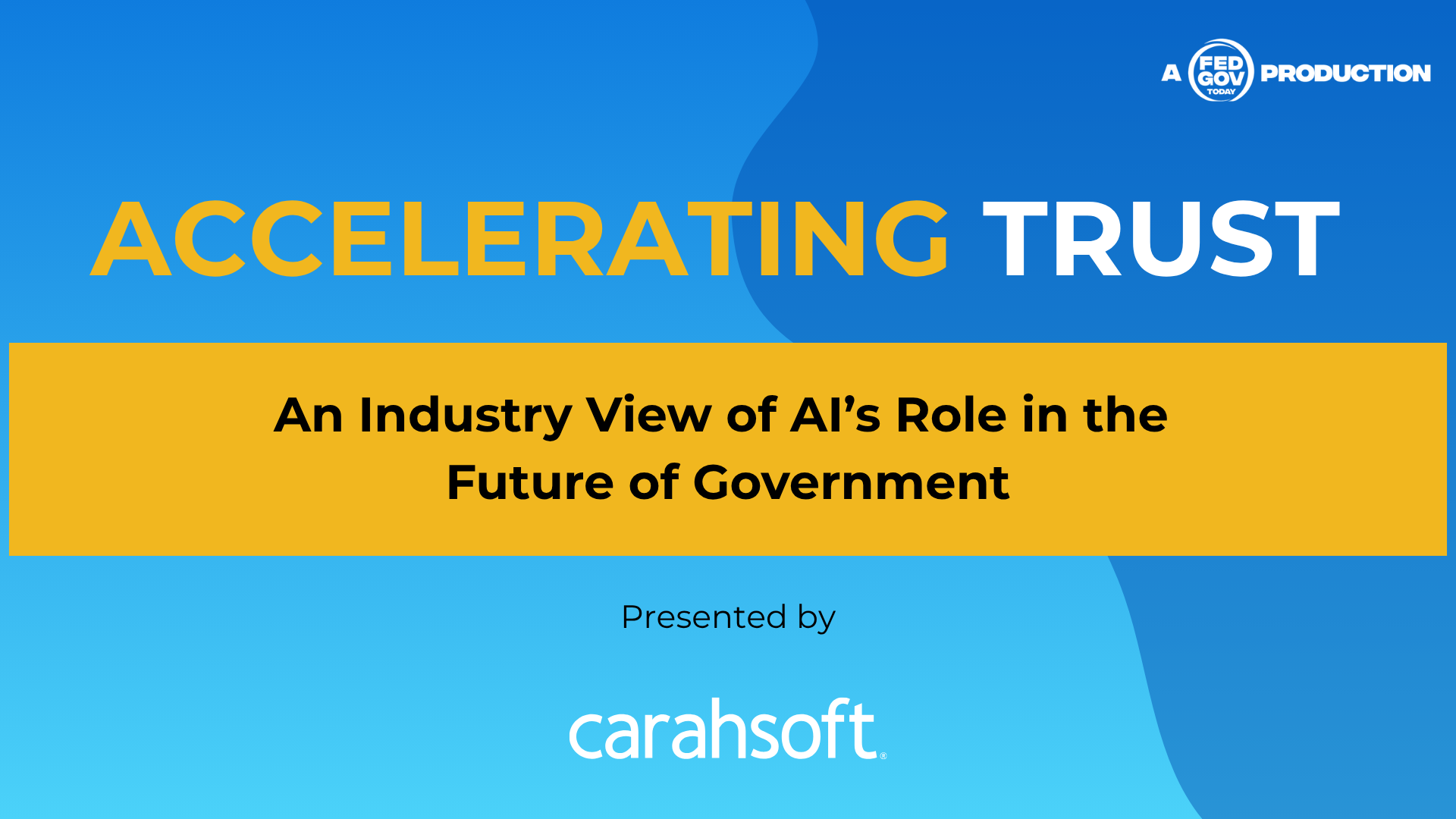
An Industry View of AI’s Role in the Future of Government
At the Carahsoft AI for Government Summit, leaders from across the federal technology ecosystem came together to discuss a turning point: artificial intelligence is no longer just an emerging concept or a collection of pilot projects—it’s becoming an operational imperative across government.
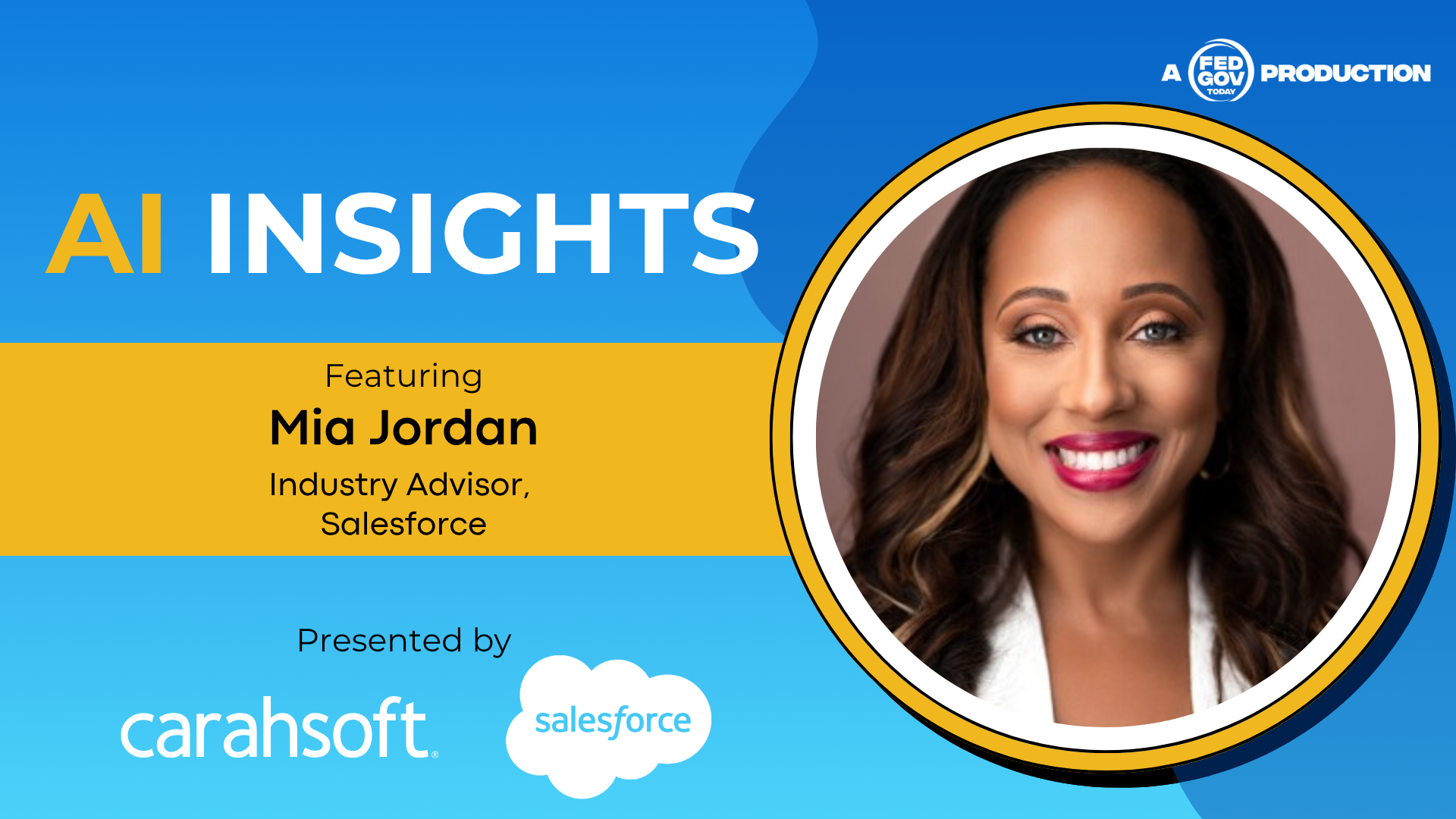
Moving AI to the Center of Government Workflows
Artificial intelligence is often misunderstood as something that must be bolted onto existing systems, as a flashy overlay for government operations. But according to Mia Jordan, Industry Advisor at Salesforce and a former government executive herself, that thinking is backward.
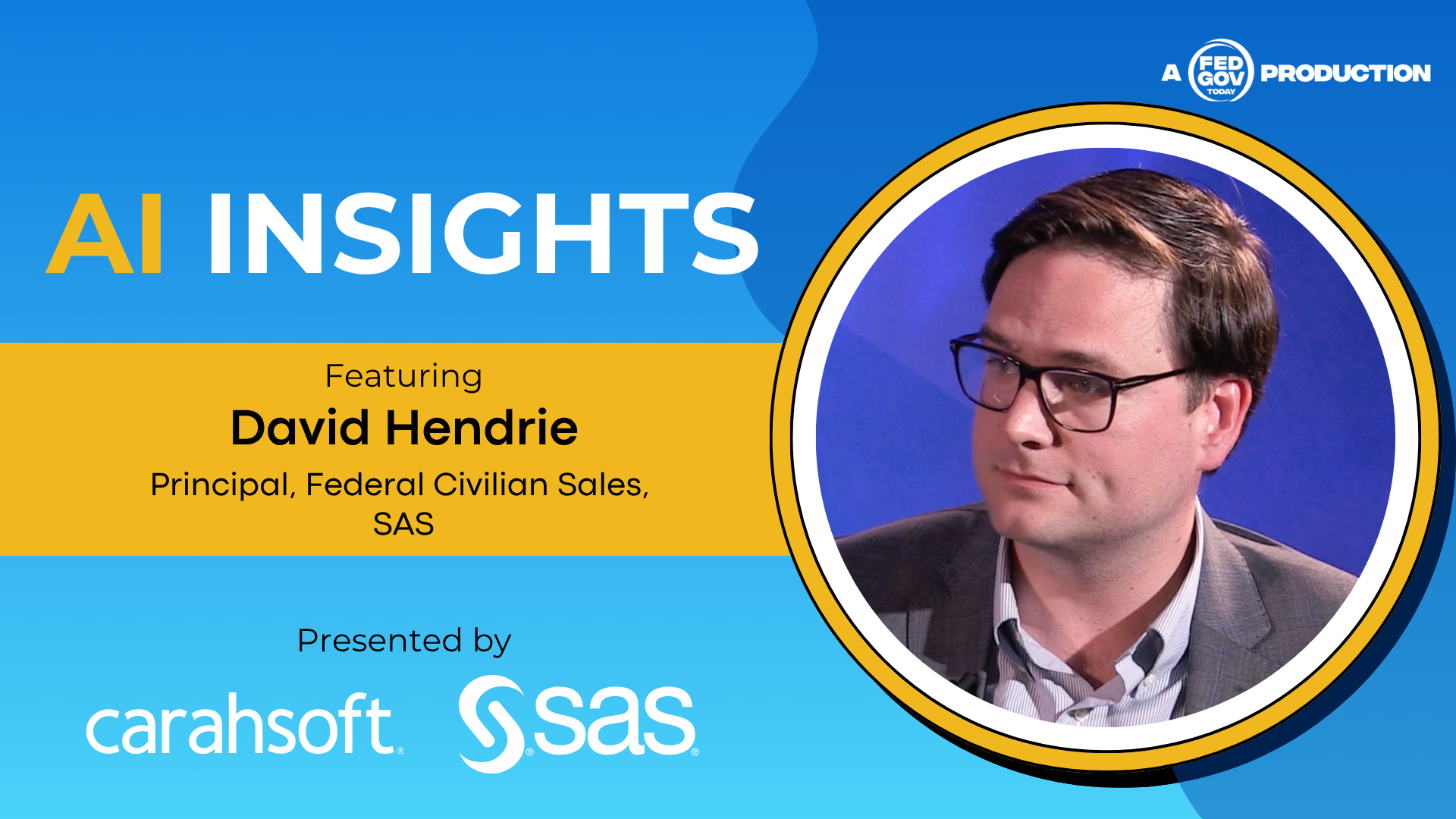
AI That Starts With the Mission
David Hendrie, Director of Artificial Intelligence at SAS Federal, explains why AI projects succeed when they begin with the mission—not the technology. He shares how decision-centric design is reshaping how agencies use data, modeling, and workforce alignment to create impact.
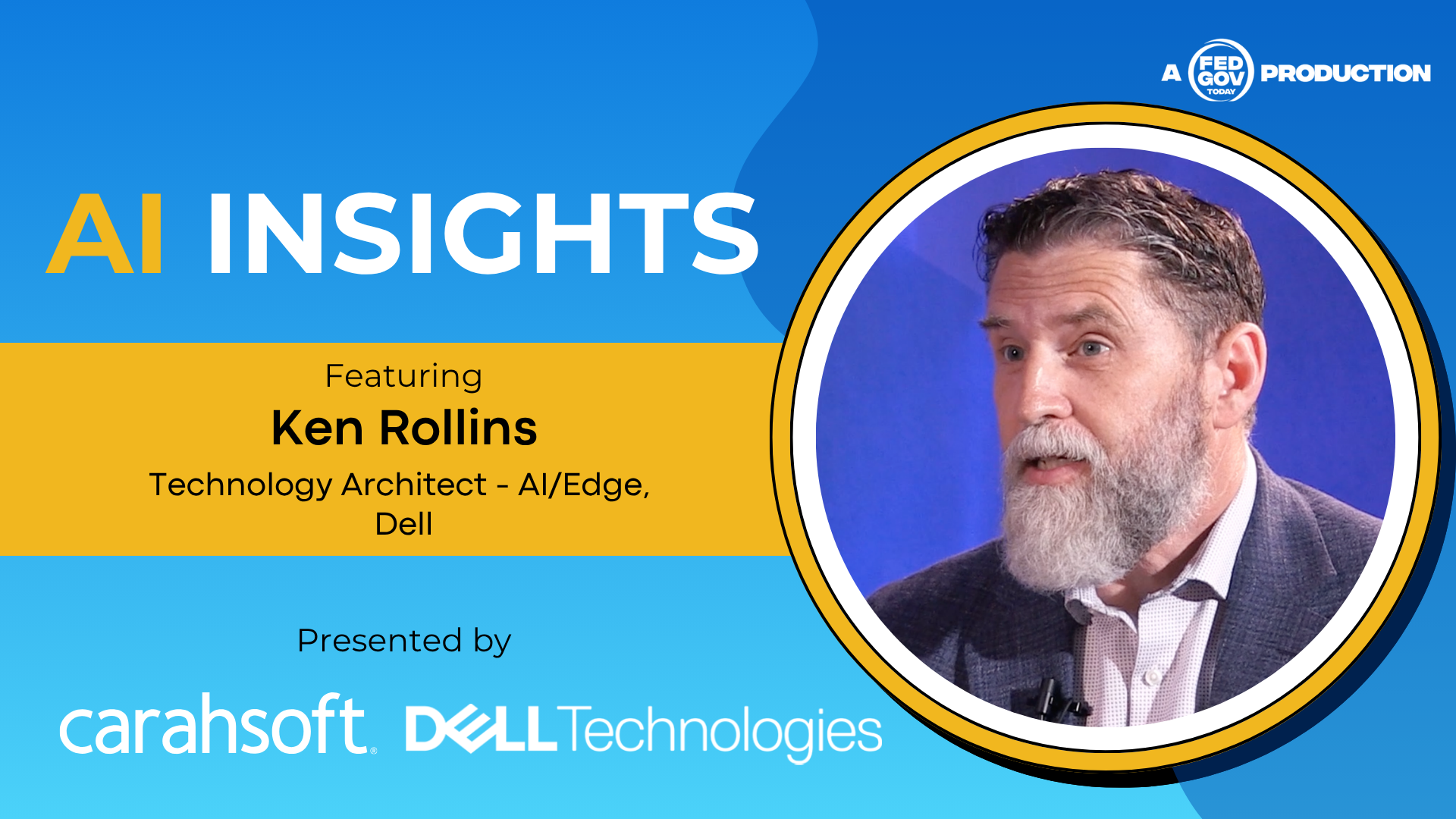
From Data to Decision
Ken Rollins, AI Solution Architect at Dell Technologies, explains why AI success hinges on designing systems from the decision backward—not from the infrastructure forward. He also explores the rise of edge AI in federal environments.
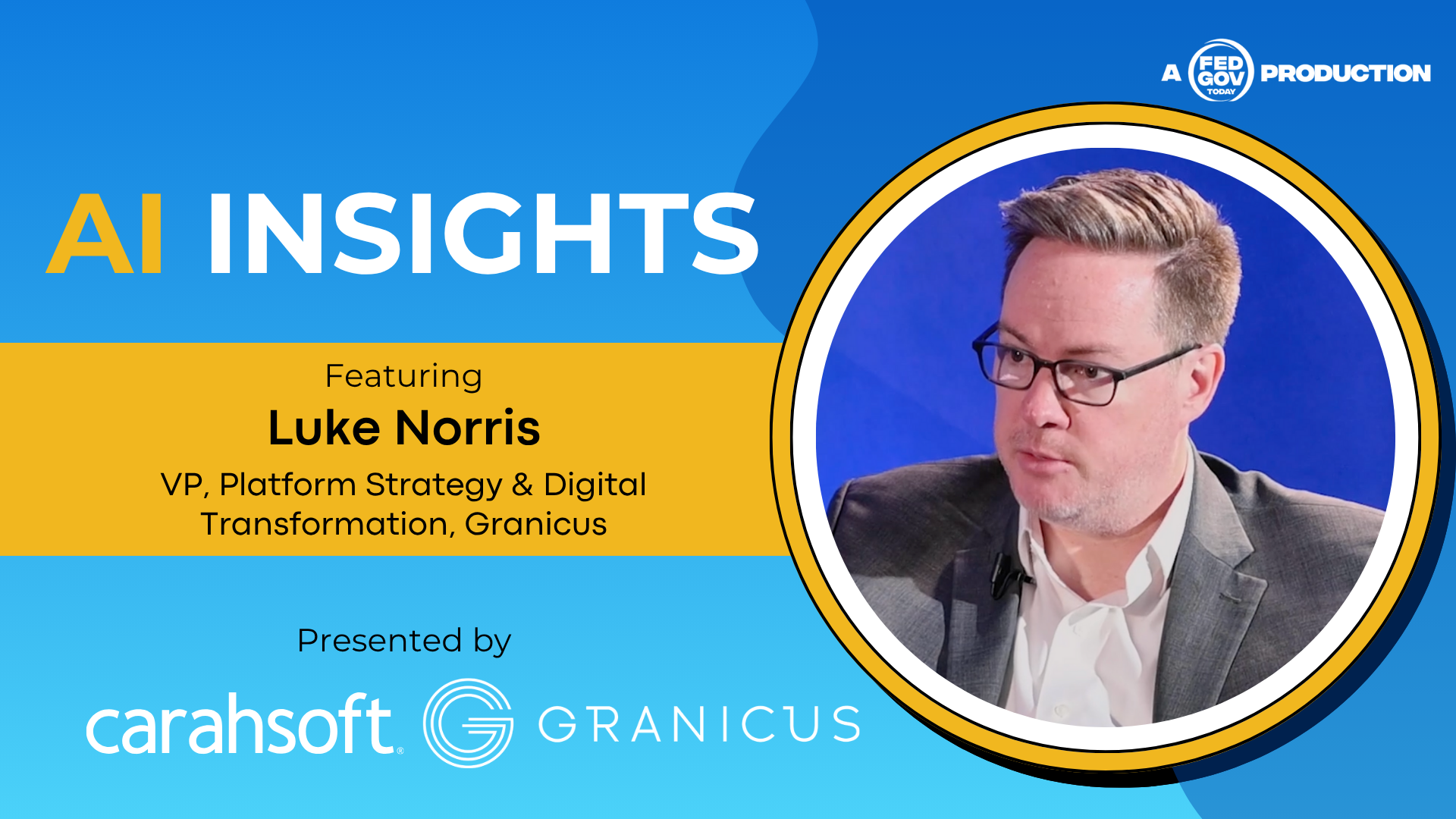
Scaling AI for Public Service
Luke Norris, VP of AI Strategy at Granicus, shares how agencies are moving past pilots to enterprise-wide AI adoption. He discusses the shift from bespoke solutions to scalable, secure platforms that deliver faster time-to-value.
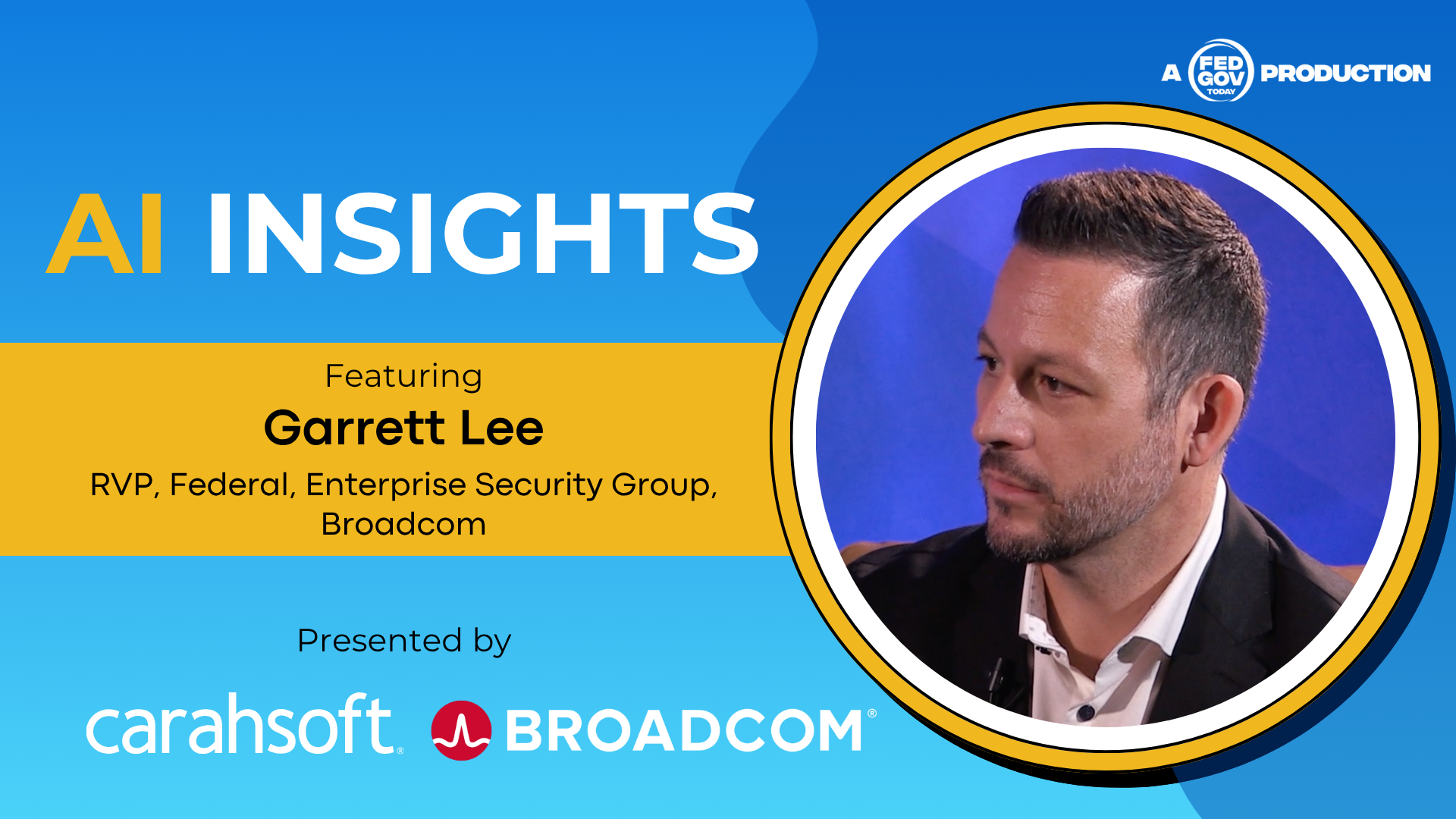
AI Is Ready—But Are We?
Garrett Lee, Public Sector CTO at Broadcom, discusses how AI security and data governance are essential for progress. He warns that overcautious policies can slow innovation and explains how responsible AI use accelerates value for missions and people alike.
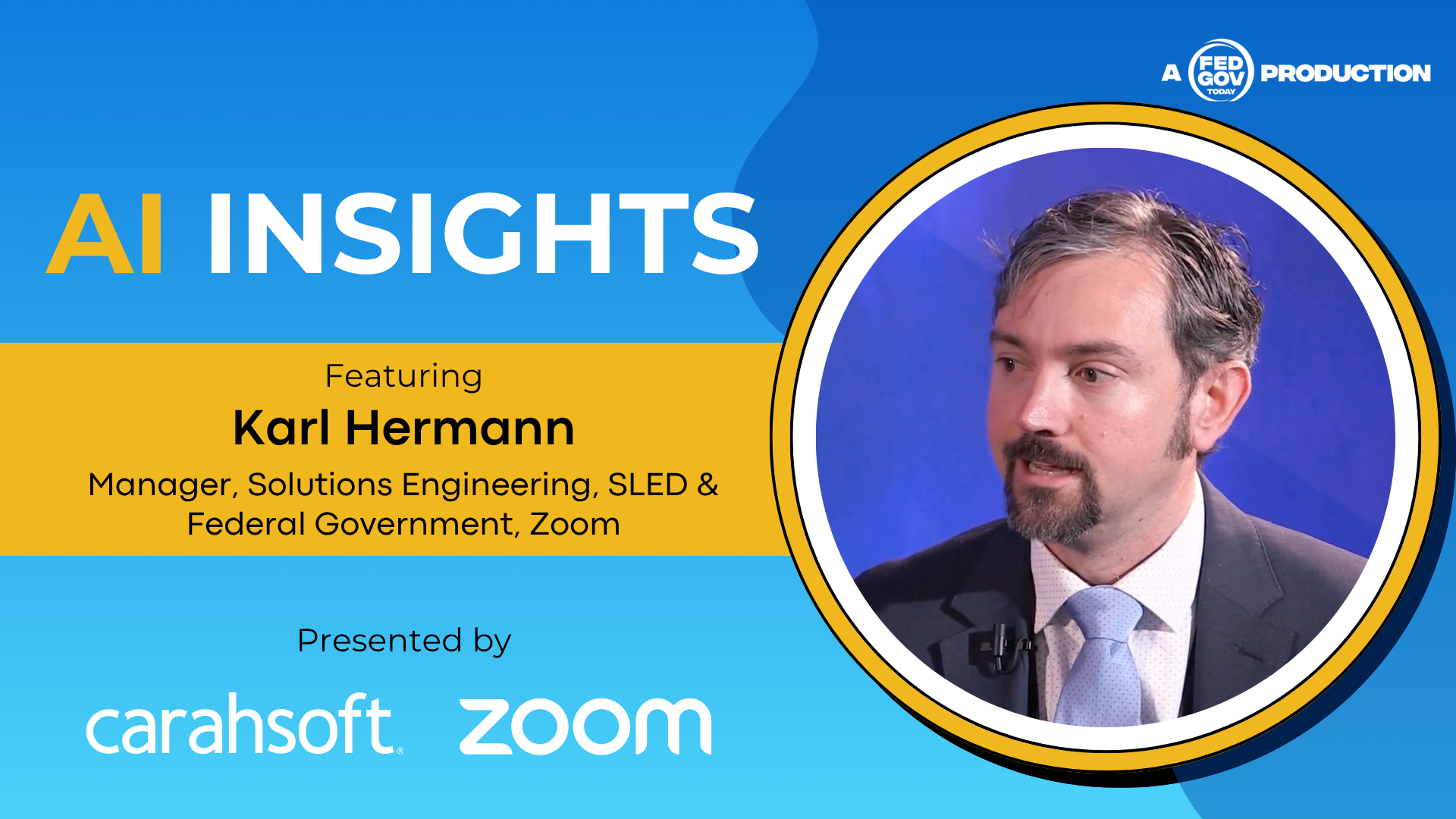
Clean Data, Clear Mission
Karl Hermann, Head of US Public Sector AI at Zoom, discusses the often-overlooked obstacles to AI adoption in government: data quality and culture. He explains why agencies need not just data scientists, but business owners who can ask the right questions.
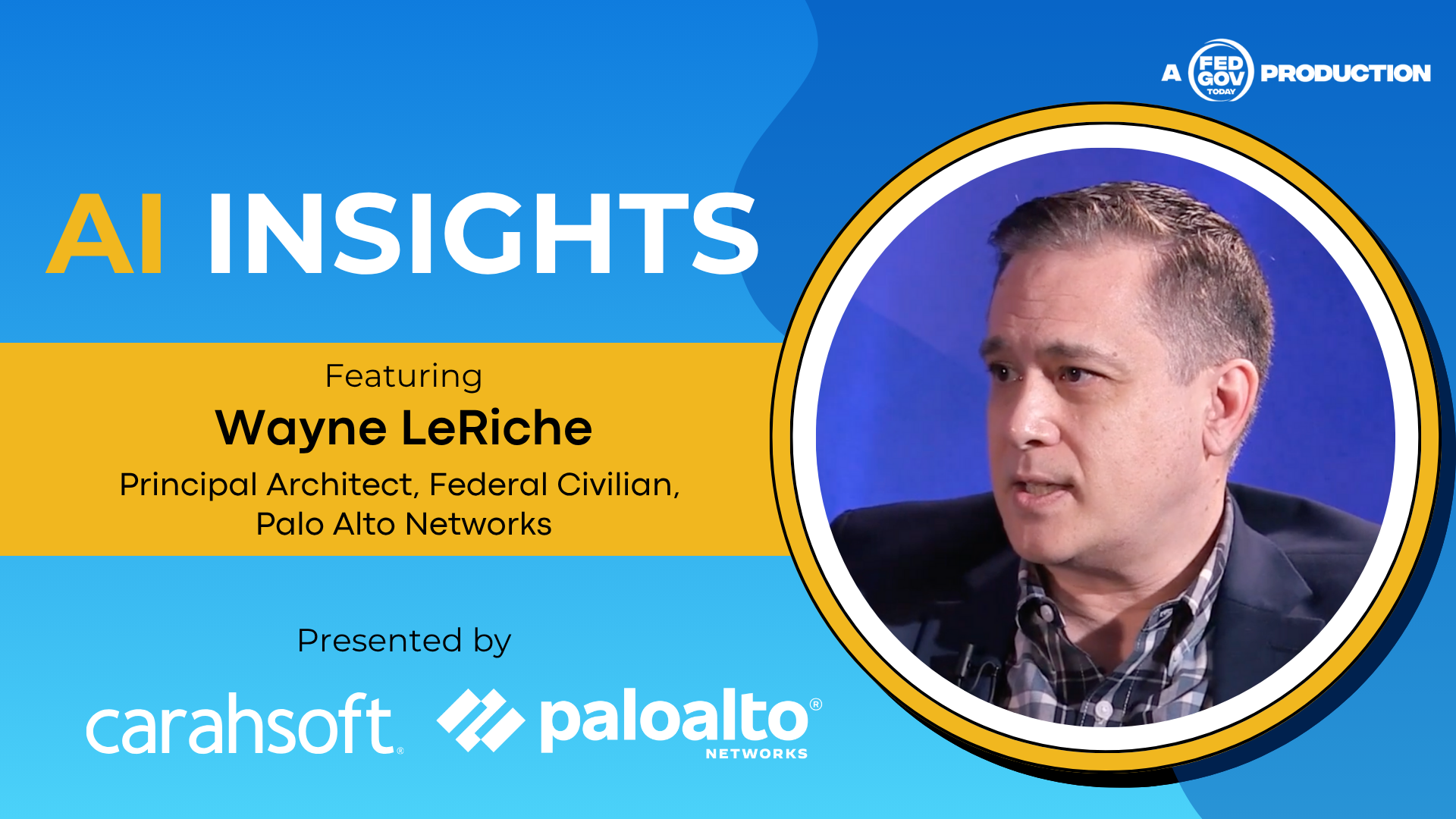
Securing the AI Lifecycle
Wayne LeRiche, Director of Federal Engineering at Palo Alto Networks, stresses the importance of securing not just AI outputs—but the entire lifecycle: models, data, and interfaces. He discusses how agencies are adopting new tools to vet prompts before they ever reach the model.
About Our Company
Best Publishing Platform
In a professional context it often happens that private or corporate clients corder a publication to be made and presented with the actual content still not being ready. Think of a news blog that’s filled with content hourly on the day of going live. However, reviewers tend to be distracted by comprehensible content, say, a random text copied from a newspaper or the internet. The are likely to focus on the text, disregarding the layout and its elements.
Our Growing News Network
Cicero famously orated against his political opponent Lucius Sergius Catilina. Occasionally the first Oration against Catiline is taken for type specimens.


